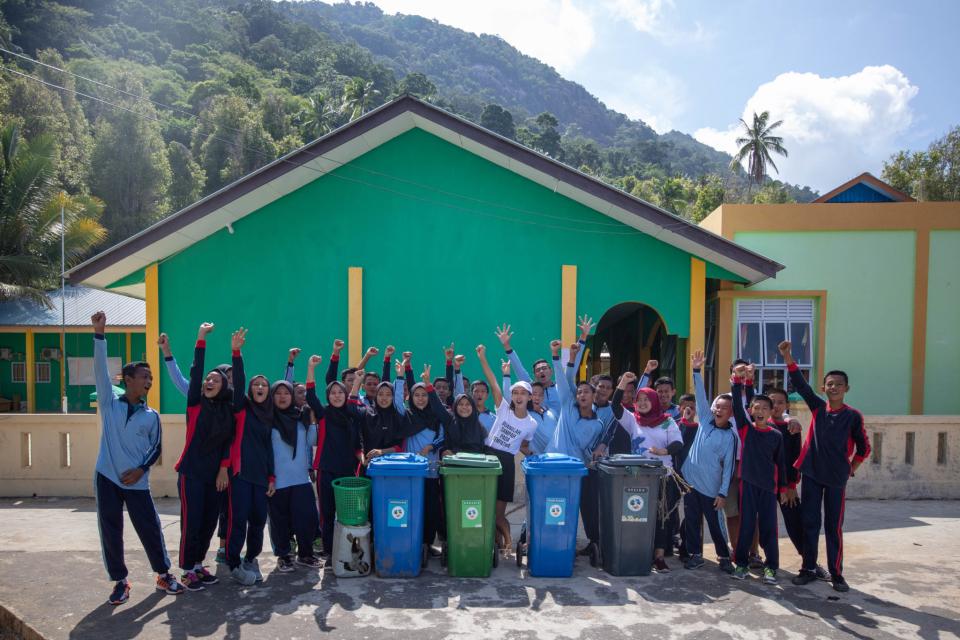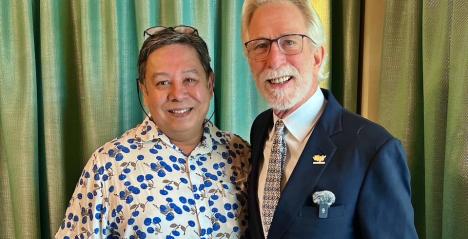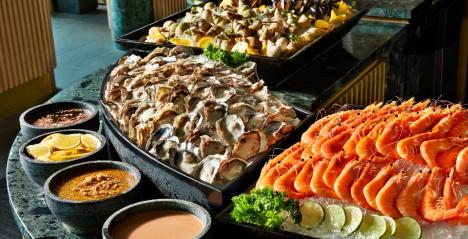It is estimated that around eight million metric tons of plastic are floating in the ocean per year. Meanwhile, World Economic Forum made a prediction that by 2050 there will be more plastic than fish in the ocean. This of course is alarming for Indonesia who is an archipelagic nation and one of the top contributors to plastic pollution in the ocean. This looming threat is felt even more so in coastal areas like Anambas that is located in Coral Triangle and rich in marine biodiversity.
In late 2017 the Anambas Foundation conducted a preliminary visit to the villages in remote islands of Anambas. When we spoke with the locals there they told us that the fish population in the seas was decreasing. This phenomenon however was a symptom of a much larger issue at hand which was the destruction of marine ecosystem in Anambas.
Many factors play a role in this environmental damage, the main ones are: unsustainable fishing practices by the local fishermen, marine debris, and poor solid waste management.
As a non-profit organization we aim to address the root causes of the issue but to do that we also have to take into account the socio-economic background of the local people. Anambas consists of a total of 255 islands, home to around 45,000 people with 75 to 80 percent of them relying on marine resources to make a living. People who were born and raised in the region did not know of other ways to generate income nor did they ever receive proper education on the negative impact of using too much plastic and dumping waste into the ocean.

Hence why in 2018 the foundation implemented Integrated Waste Management program on the islands of Bawah, Kiabu, and Telaga. The main objective of this program is to educate the local communities and staff at Bawah Reserve to manage their waste responsibly and keeping the ocean clean. We created educational materials tailored to the people and we continuously educate the community and school children.
The first education on waste management that we emphasize on is different types of waste and how to manage them. For example, to manage organic waste, we show the community how to create compost and grow vegetables on their terrace.
To ensure the program runs properly, the foundation provided hundreds of garbage bins, carts, sacks, and other safety equipment to the villages and built temporary storage units as waste sorting center. Moreover, to increase communal participation in waste separation, we created a Waste Bank scheme where locals can collect and sell recyclable waste to the recycling center and earn money to be deposited and can be withdrawn by the end of the year.
Additionally in 2019 we gave an upcyling waste training on how to make bricks made from plastic waste or styrofoam, candles and soaps from used oil, and crafting bags and pouches from plastic waste.

In the first year of the program, we also operated a boat that went around the villages periodically to pick up recyclable trash and took it to Batam to be recycled by our partner. However, the remote location and poor connectivity between the islands were two of the biggest logistical challenges for this approach. The time to travel from the nearest international port in Batam to the district capital of the Anambas could take up to 30 hours.
We decided to limit the waste transfer from the villages and will be managing most of the waste at the recycling center that we’ve built in Kiabu. The rest of the recyclable waste that cannot be managed locally, such as metal, rubber, and hazardous materials will still be transferred to and managed in Batam.
We can say that the program has effectively increased awareness and changed the habits of the people who live in those three islands. Through waste management, we eventually enable them to live in a cleaner and healthier environment. The utilization of waste also generates alternative income for the local community. In fact, the programme’s success has been so prominent that many of the village authorities and regional government have approached the foundation and requested for the programme to be implemented in their area.
About Anambas Foundation:
Anambas Foundation is an Indonesian Foundation that aims to improve the overall ecosystem in the Anambas, both underwater and terrestrial, as well as sustainably lifting the community’s welfare.
About the author:
Asri Putri is the Foundation’s program manager. She’s responsible for managing all of the programs, including conservation programs, community development, and Integrated Waste Management.
Find out how to take part in empowering the community of Anambas here.











